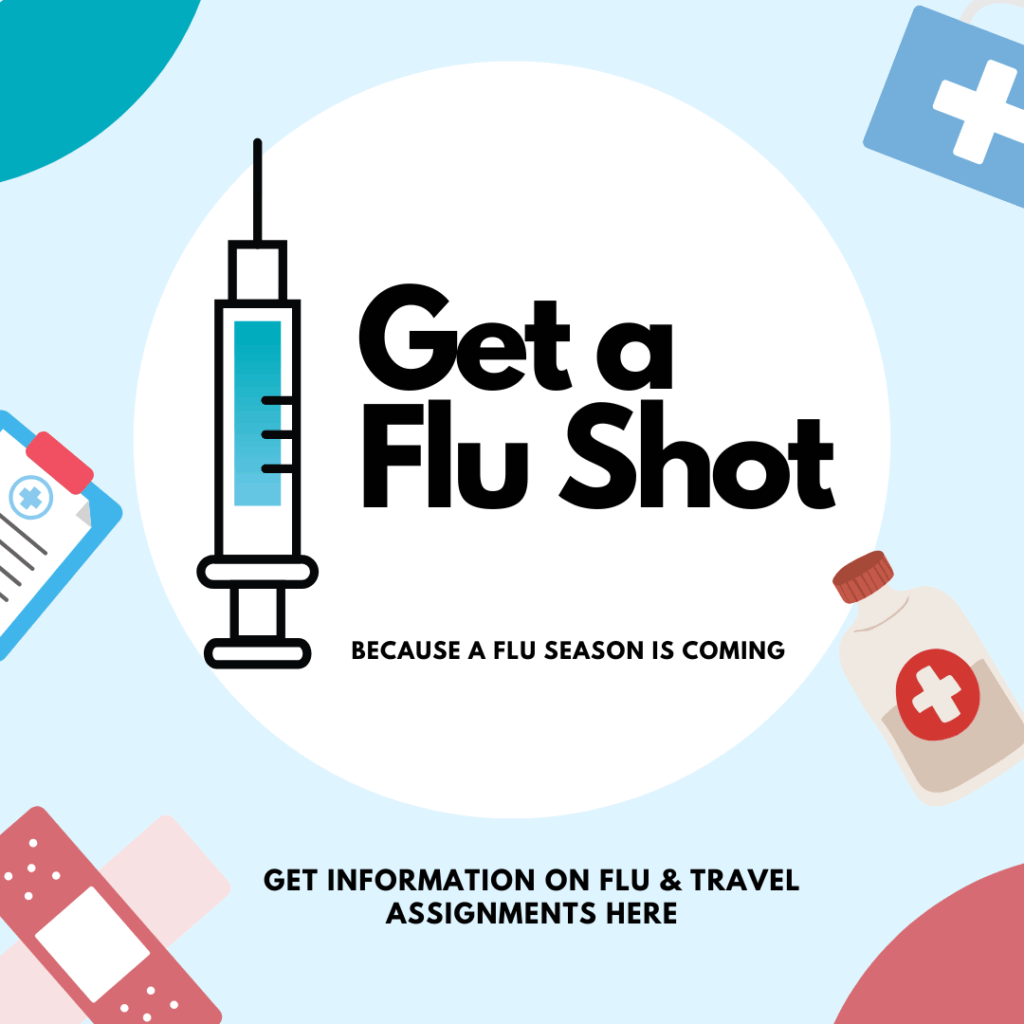
In healthcare, policies around vaccination—especially for influenza—can vary depending on your employment arrangement. One area where this difference is most evident is between travel healthcare professionals and permanent staff. While both groups work in patient care, travel professionals are often held to stricter immunization requirements, including mandatory flu vaccination. But why the discrepancy?
Let’s explore the key reasons behind this policy divide.
1. Credentialing and Compliance Standards
Travel healthcare workers typically operate through staffing agencies that place them in facilities across different states and health systems. These facilities often require a uniform set of health compliance documents—including up-to-date flu vaccination records—as part of the onboarding process.
- Why it matters: Agencies must meet the compliance expectations of every facility they serve, often defaulting to the highest standard to avoid delays.
- Contrast with staff employees: Permanent staff are onboarded once and managed under a single institution’s policies. If a hospital doesn’t mandate flu vaccines for staff, employees aren’t required to receive one—even if travelers must.
2. Interstate and Interfacility Movement
Travelers work short-term contracts in multiple locations—sometimes even in different states throughout flu season. This increased mobility makes them potential vectors for spreading influenza between communities and healthcare systems.
- Facilities mitigate risk by enforcing vaccine requirements for travelers to prevent cross-location transmission.
- Staff employees, on the other hand, generally work in a single environment, reducing their exposure footprint.
3. Limited Window for Assignment Approval
Travel assignments often move quickly. A facility may request a traveler and want them onsite within days. In that short window, agencies must submit all compliance documentation—including vaccination status—to ensure the traveler is cleared to work.
- Preemptive vaccination simplifies the process and avoids last-minute reassignments or delays.
- Staff employees can often delay or waive vaccination through internal HR processes, or may be subject to local union or institutional policies that allow for more flexibility.
4. Facility-Specific Policies That Don’t Always Extend to Staff
Some healthcare facilities adopt stricter requirements for non-permanent staff. These requirements might be contractual or part of third-party risk mitigation protocols.
- Travelers must adhere to these terms to work in the facility.
- Staff may fall under different employment and liability structures, especially if they are unionized or protected by state labor laws that don’t mandate vaccination.
5. Public Health Optics and Risk Management
From a public health perspective, having travelers vaccinated projects a strong stance on infection control—especially when these professionals rotate into high-risk units like ICU, NICU, or oncology.
- Agencies and facilities prioritize perception and safety by requiring flu vaccination for travelers.
- Staff policies, shaped by internal politics or workforce preferences, may take a more lenient or voluntary approach.
The difference in flu vaccine requirements between travel and staff healthcare workers isn’t about favoritism—it’s about logistics, risk mitigation, and compliance. As a traveler, you may be held to higher standards because of your mobility, the speed of placement, and the complexity of cross-facility work. While staff workers might have more leeway, travelers serve on the front lines in diverse environments and must meet universal standards to keep patients and themselves safe.
Understanding this difference can help healthcare professionals make informed decisions and prepare proactively for their assignments.

 and then
and then